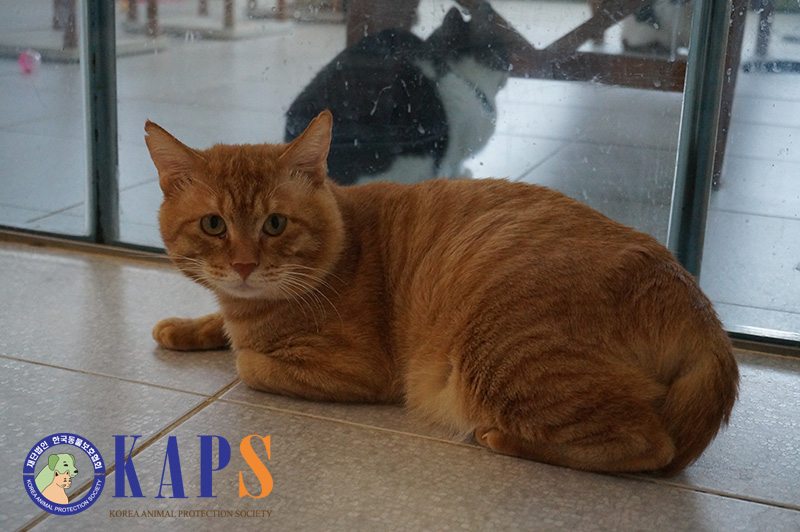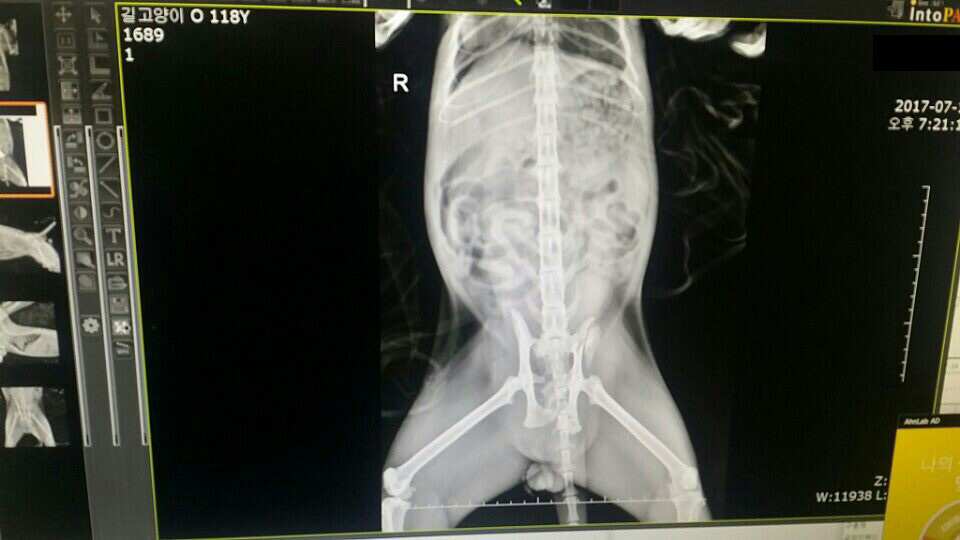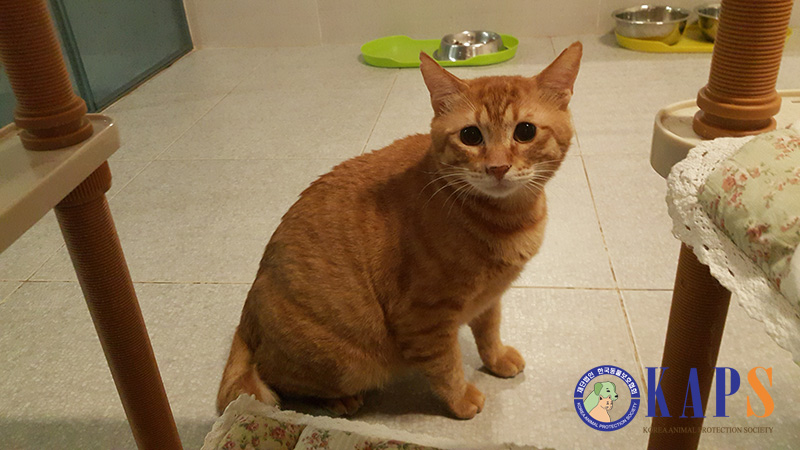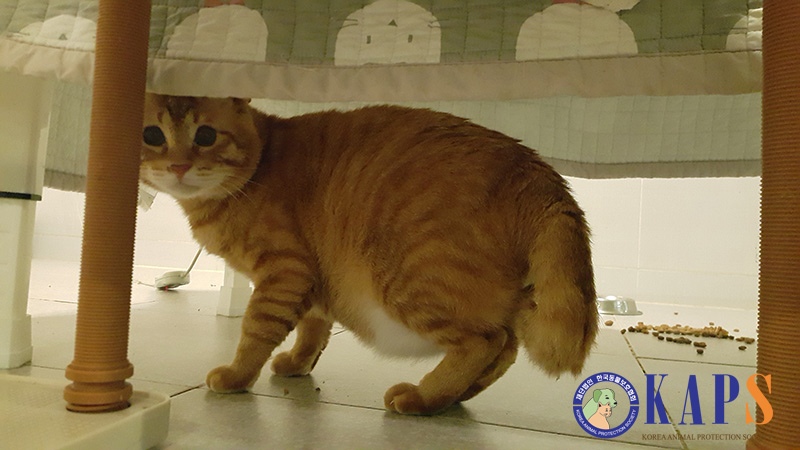At our shelter we have a feral cat called Wangja. He is Mr November in our 2018 KAPS Calendar.

Mid July 2017 on an incredibly hot day, KAPS received a call. As
soon as the call was picked up, there was a very urgent voice. The caller was a
young lady calling from Suseong-Gu and she was requesting we rescue a cat
unable to walk due to a broken hip.
At this time, our shelter was already crowded with kittens born
during Spring time and abandoned by their mothers. We could barely accept any
more.
In this situation, where a person has been feeding a feral cat and
the feral cat is injured, we recommend collecting the cat in a blanket and
taking it to a vet. However, this cat was feral and also had a broken hipbone.
Surgery for the cat would cost about $5000. The young lady said
she could not bear the costs of the expensive surgery and had been calling various
services in Daegu who could accept and care for the cat. No one had been able
to provide the necessary care.
The young lady admitted the cat to a veterinary and when visiting
the cat one last time decided to call KAPS for assistance. The lady
asked if KAPS could accept the cat into our shelter. She asked if it was
possible for the cat to be accepted without surgery, in its current state. We
did not reject her request.
More than anything, the most difficult work we do is rejecting
animals due to special, financial or labour constraints. KAPS will accept
animals if we know we have space for one more.
Through the efforts of
the young lady Ryu Jong, Wangja came to stay at our shelter.


▲Wangja's X-ray
photos.
In our shelter we have had many injured feral cats and after
looking after feral cats for nearly 20 years, this was not unfamiliar
territory. It is not easy for feral cats to trust humans and tolerate any care
they may attempt to provide. It is very challenging work.
We spoke with our associate veterinarian and surgery was not
necessary. Even if it was necessary, we had already committed to providing the
care Wangja required.
15 days after we
received Wangja, he began to start walking. Unfortunately, we could not take
photos of Wangja during the first days of recovery. A wild cat by nature, we
did not want to cause stress that was not totally necessary and decided not to
film him.
Instead, all the footage we have of Wangja is from the shelter’s
CCTV footage. We have footage of him eating food, drinking water and moving a
little when he needed and quietly recovering in our shelter.
▼ CCTV footage of Wangja's recovery
▲After 2 weeks Wangja came to the shelter, He started to walk and move around carefully.
At first Wangja was very uncomfortable and cautious in his new environment but as time has passed, he began to jump and run and now considers the shelter to be his new home.




▲ Wangja has become more docile as he stays at the shelter. He will still escape if persons approach.
▼More CCTV
footage
Wangja has now recovered his health and has also been
neutered. We hope Wangja continues to live a long and healthy life.